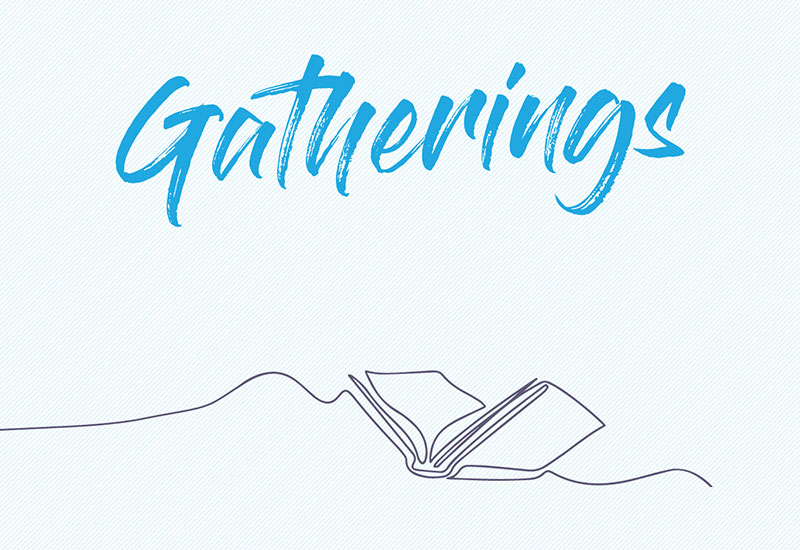August 2024
Vol. 5 No. 7 | ISSN: 2652-5836
After months of study and preparation, 60 IPEd members will sit the 2024 accreditation exam on Monday 12 August.
Good luck to everyone taking the exam at locations across Australia, New Zealand and Japan! May your notes be perfectly tabbed and your mind awash with editing know-how.
This year marks a significant milestone for the accreditation exam: the 2024 exam will be the 10th exam. Let’s celebrate that milestone by learning a little more about the history of the exam and what the first exam back in 2008 was like – think hard copies of the Style manual and pen and paper mark-up.
This month we also have last minute reminders from the Accreditation Board and some insight into what happens after the exam. We have updates from the Standing Committee on Academic Editing and the IPEd Accessibility Initiative.
Nominations for the Rosie Award are open – if you’re considering nominating (and we hope you are!) you’ll find links to all the information you’ll need.
Speaking of awards, we’re thrilled to bring you the winning entry for the 2024 Student Prize: Despina Cook’s structural edit report of the novel The Blue Poppy Sea.
And we spoke with Dr Renée Otmar DE about her new guide, Cultivating a trauma-sensitive approach in your editing.
Plus we have branch updates and event reports, an editor’s limerick (!) and some fantastic resources and opportunities.
In other news, IPEd will be at the Emerging Writers Festival, as part of the National Writers Conference in September. Thanks to volunteers from the Editors Victoria branch who will be there, promoting IPEd and the valuable work of editors. Stay tuned for more.
Thank you to everyone who completed the Working Party on Artificial Intelligence’s (WPAI) recent survey. The WPAI will have more to share soon!
And finally, if you are an Australian editor and you care about the ethics of editing you can contribute to a new study about the ethics of editorial care. To participate or learn more, please email Emily Brain at u1147493@umail.usq.edu.au.
Happy reading!
Are you IPEd’s new Company Secretary?
The Institute of Professional Editors Ltd (IPEd) seeks to appoint a Company Secretary to manage IPEd’s statutory duties and responsibilities.
The role requires attendance and preparation of board papers for approximately 10 Board meetings per year (via Zoom) and accompanying Finance and Risk Management (FRM) meetings, taking part in regular meetings for financial reporting and general compliance issues, as well as preparation and attendance at the AGM.
This is a unique opportunity to contribute to the development of IPEd and, in turn, the profession of editing.

- 2024 IPEd accreditation exam
Date: Monday 12 August 2024 - Biotext: Content design – using evidence from users to develop content
Date: Tuesday 20 August 2024 - Through the brambles: pathways in fiction editing
Date: Tuesday 3 September 2024 - Business planning for freelance editors
Date: Tuesday 1 October 2024 - Editors Queensland Sunshine Coast Group
Date: Wednesday 9 October 2024
Don’t miss out on these forthcoming workshops. Bookings will open closer to the event, but pop the dates in your diary today!
- First Nations in Fiction/Cultural Sensitivity Editing, with Angie Martin
Date: 9 September 2024 - Grammar Refresher (3-part workshop), with Linda Nix
Date: 9, 16, 23 October 2024 - Developing your Freelance Editing Business Plan, with Linda Nix
Date: 30 October 2024 - Macros for Mac (2-part workshop), with Paul Beverley and Jennifer Yankopolus
Date: 7, 21 November 2024 - True Tracks – Indigenous Copyright and IP for editors, with Terry Janke & Co
Date: 26 November 2024 - Macros for PC (2-part workshop), with Paul Beverley and Jennifer Yankopolus
Date: 27 November, 4 December 2024 - Intro to Indexing, with Sherrey Quinn
Date: 11 December 2024
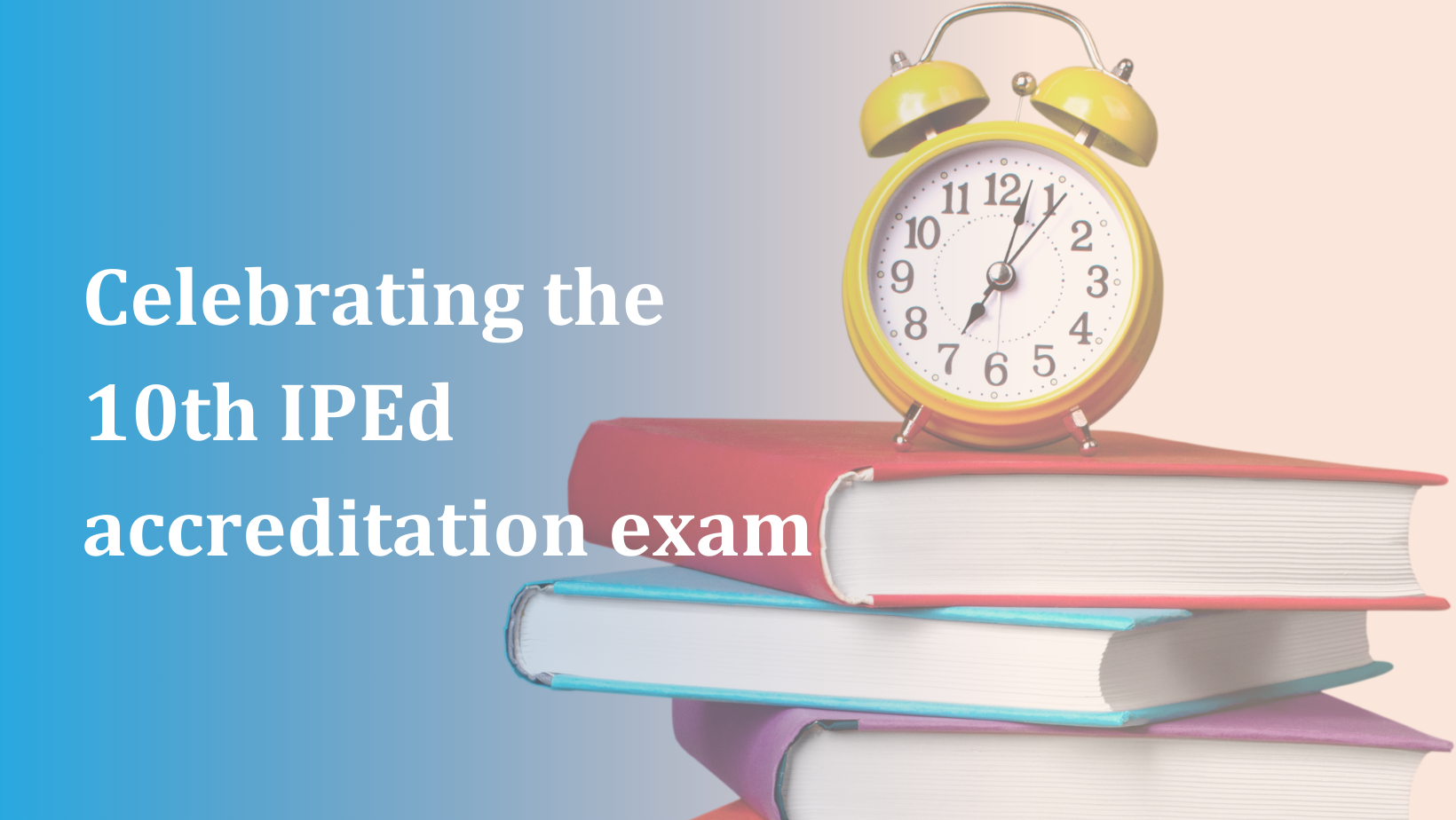
On Monday 12 August 2024, editors across Australia and New Zealand will sit the Institute of Professional Editors (IPEd) accreditation exam. It will be the 10th IPEd accreditation exam. The first exam was held in 2008.
On this significant milestone, IPEd acknowledges the considerable effort that went into establishing the exam and the ongoing work of maintaining and improving accreditation. We celebrate the enduring value of accreditation for the profession.
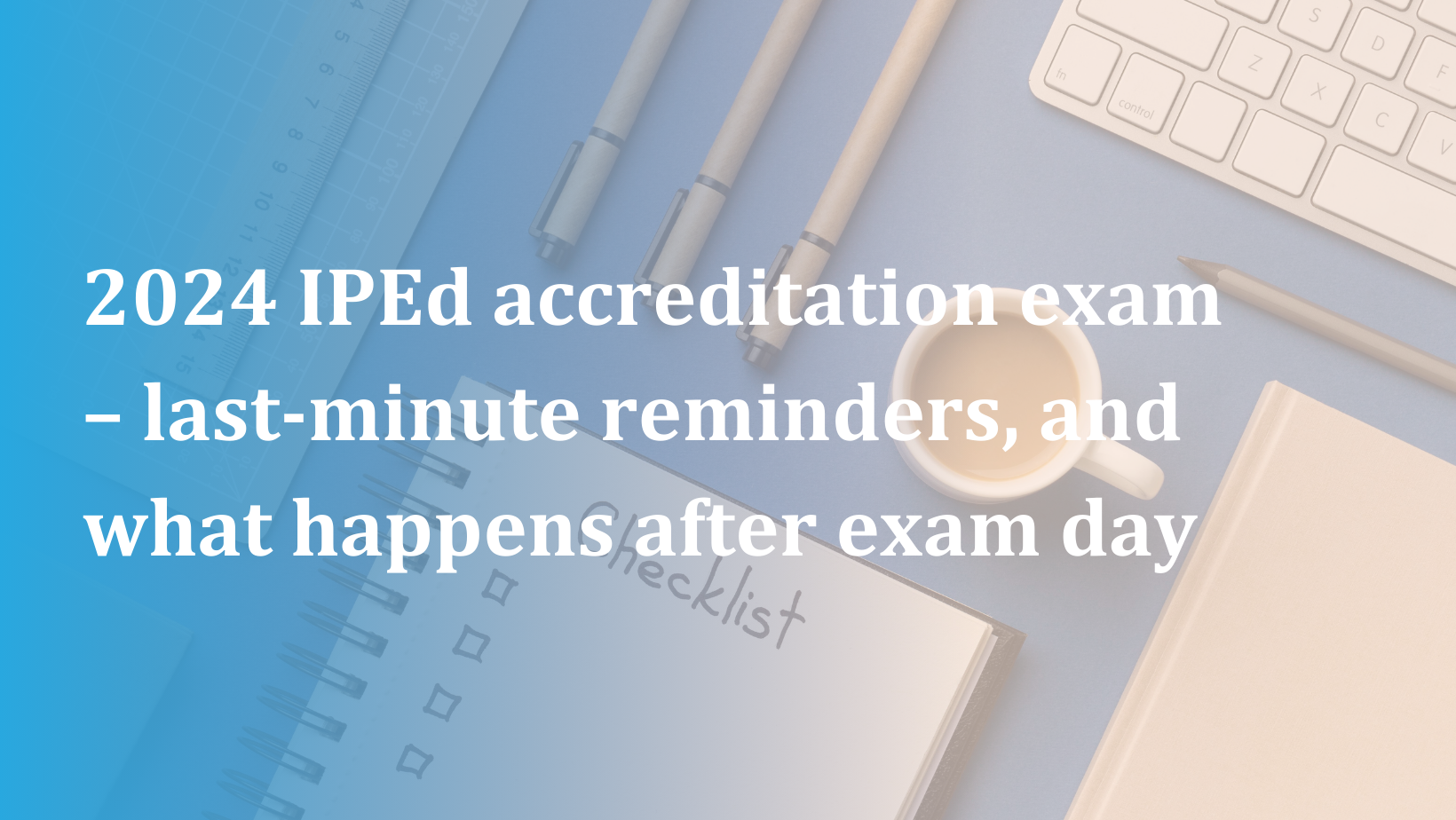
The accreditation exam on Monday 12 August is rocketing towards us! The Accreditation Board have some last-minute reminders for you if you’re sitting the exam. They’ve also briefly explained what happens after you sit the exam, including when you can expect to hear if you’ve passed.
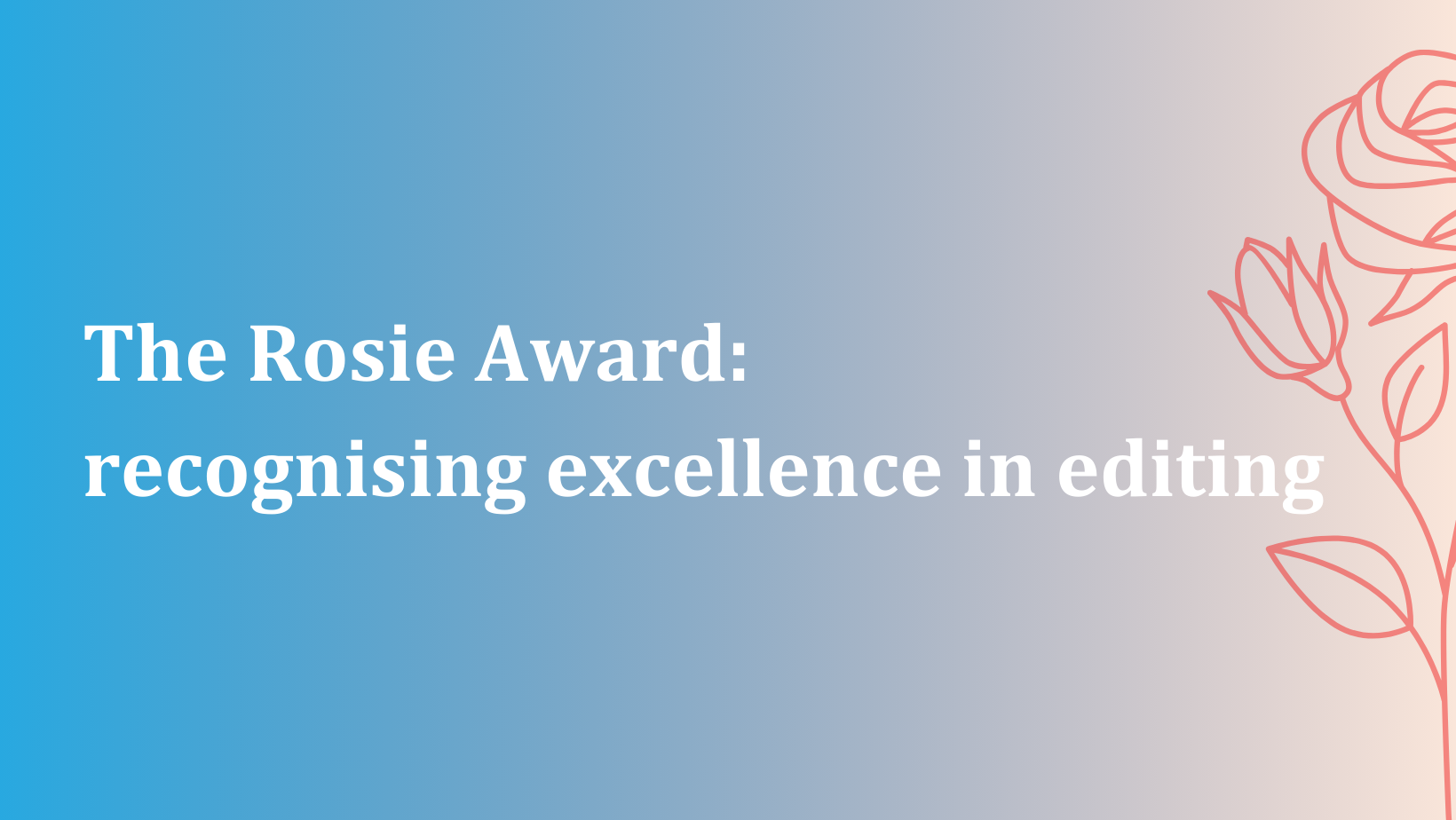
The Rosanne Fitzgibbon Editorial Award (the Rosie) is open for nominations.
The Rosie recognises excellence in editing, as demonstrated in one work, with testimony from the author, publisher and editor.
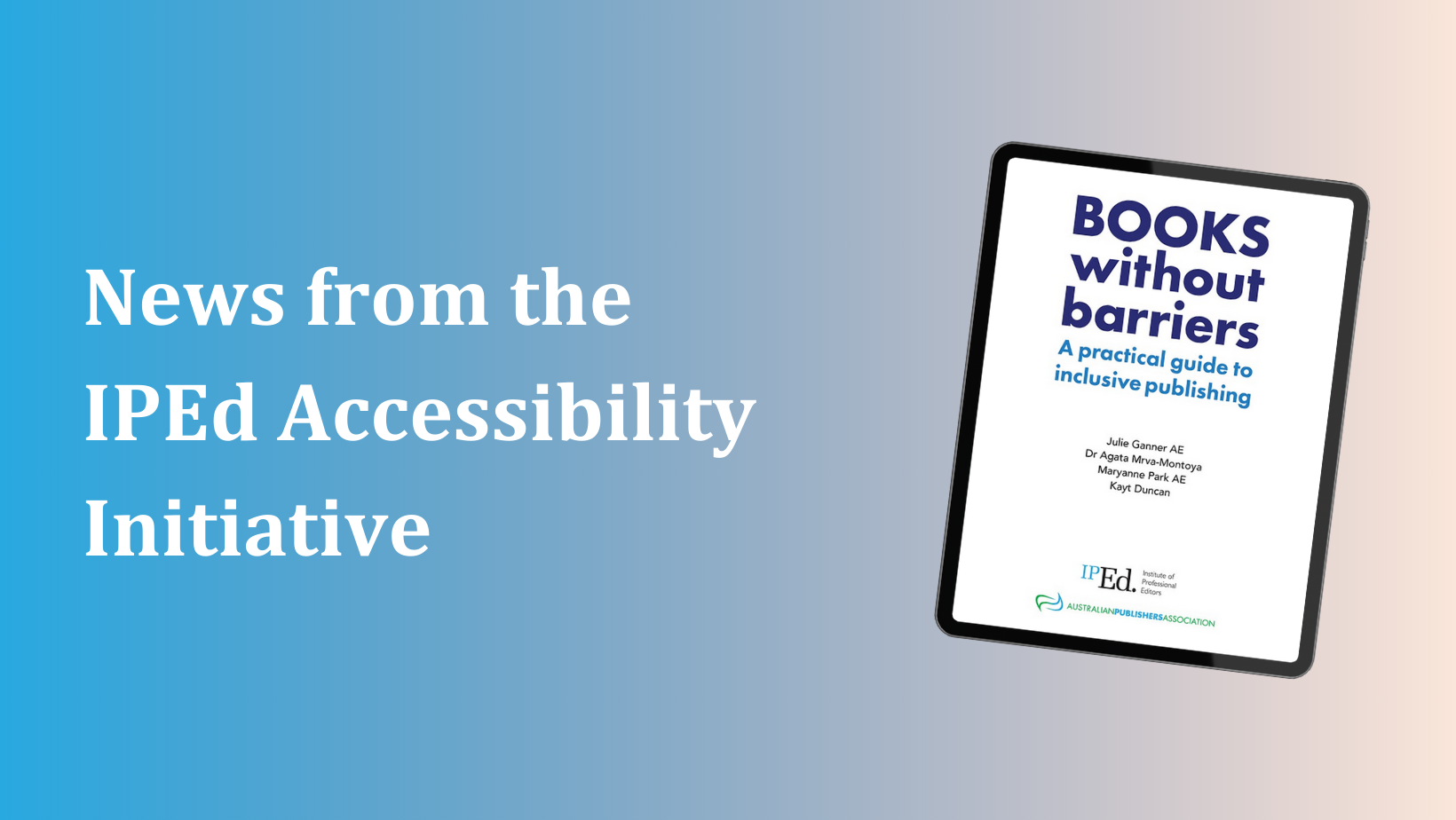
Over the coming months, Gatherings will run a series of articles based on the information and research in Books without barriers. The aim is to help all editors become familiar with the main issues we may encounter during our daily professional practice. Eventually, editing for accessibility should become as natural as spotting typos.

The Standing Committee on Academic Editing (SCAE) is committed to improving rates of pay and access to work for IPEd’s community of academic editors. SCAE shares updates on their outreach work.
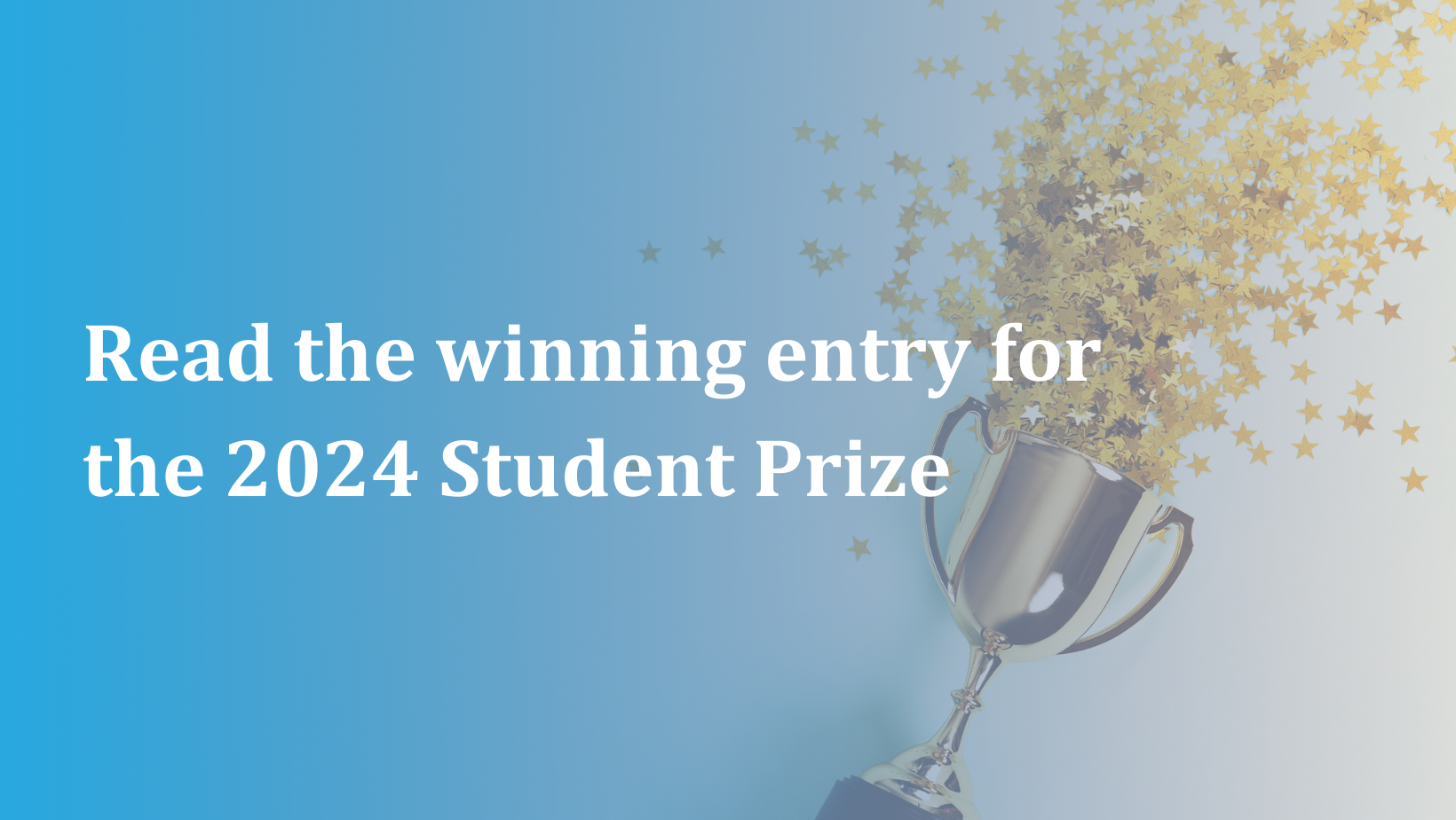
Despina Cook’s winning entry for the 2024 IPEd Student Prize is now available to read on the IPEd website. A student in the Graduate Certificate in Writing, Editing and Publishing program at the University of Queensland in 2023, Despina was awarded the prize for a structural edit report of the novel The Blue Poppy Sea.
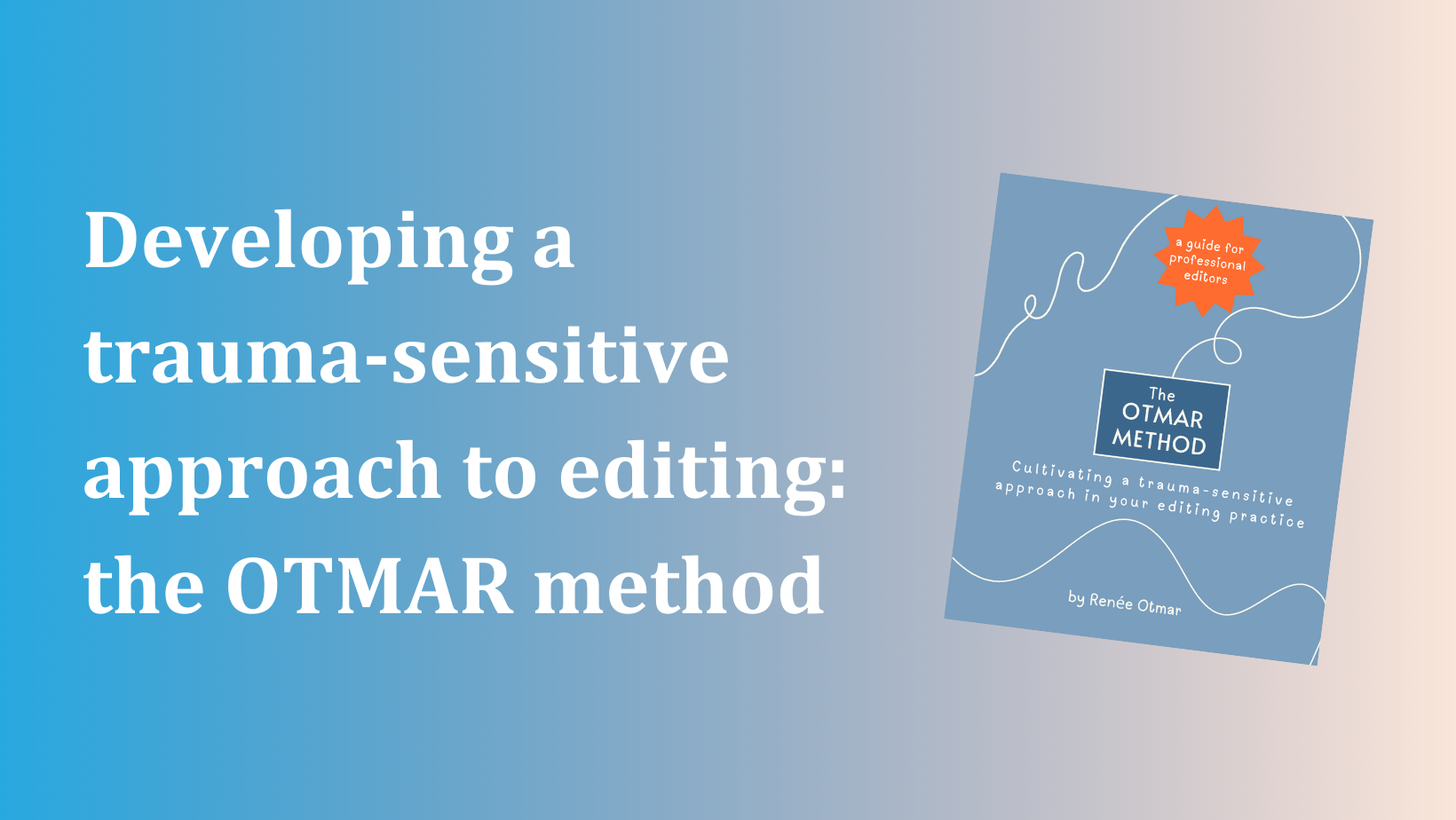
Vicarious trauma, traumatisation and burnout are increasingly recognised as occupational hazards of editing.
We spoke with Dr Renée Otmar DE to learn more about her guide Cultivating a trauma-sensitive approach in your editing: the OTMAR method, and why editors should be considering a trauma-sensitive approach.
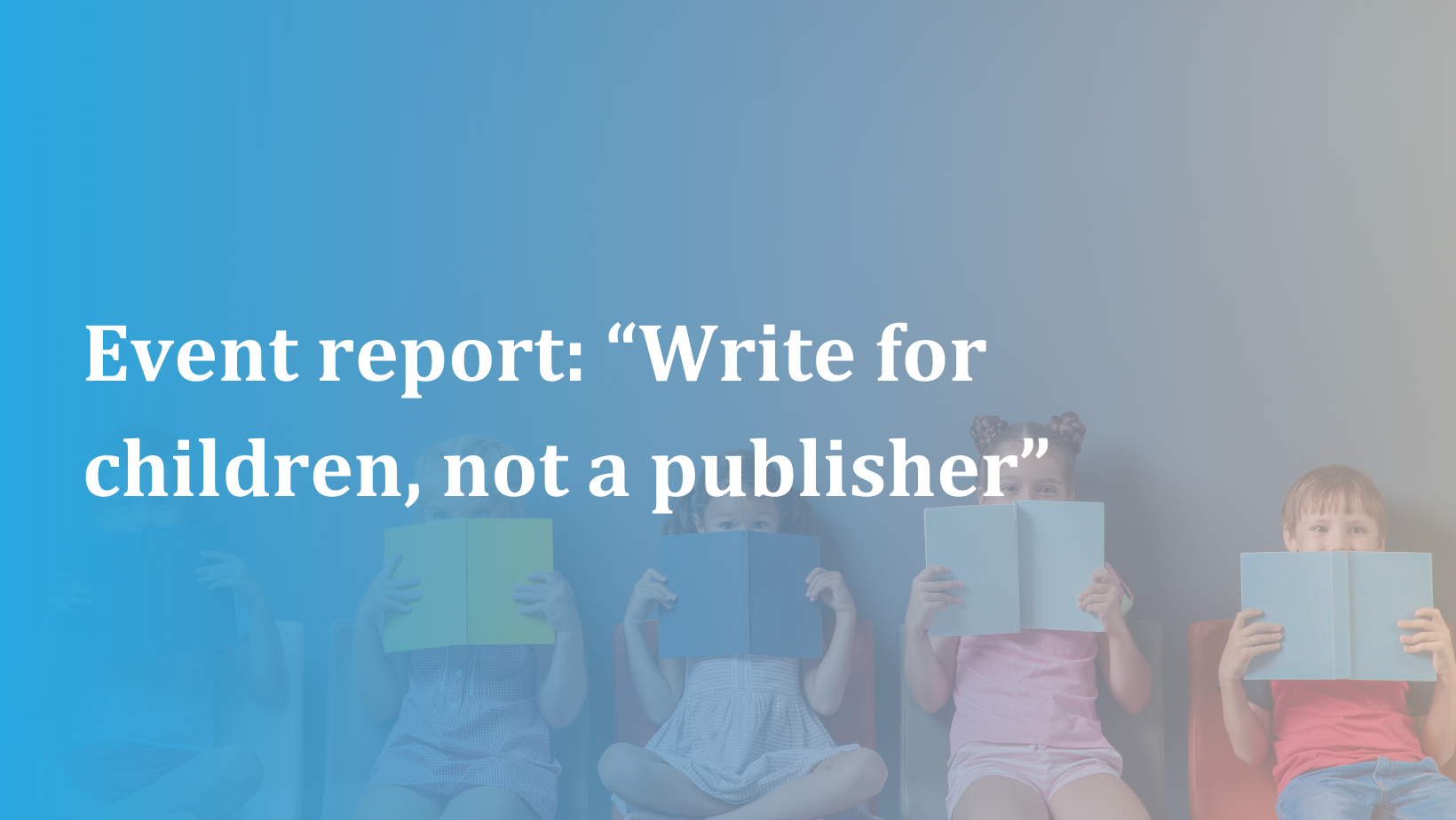
Michelle Worthington shared her inighst into writing and editing children’s books in a recent IPEd workshop. Robyn Gillies and Ian Mathieson from Editors Queensland report on the workshops and Michelle’s tips.
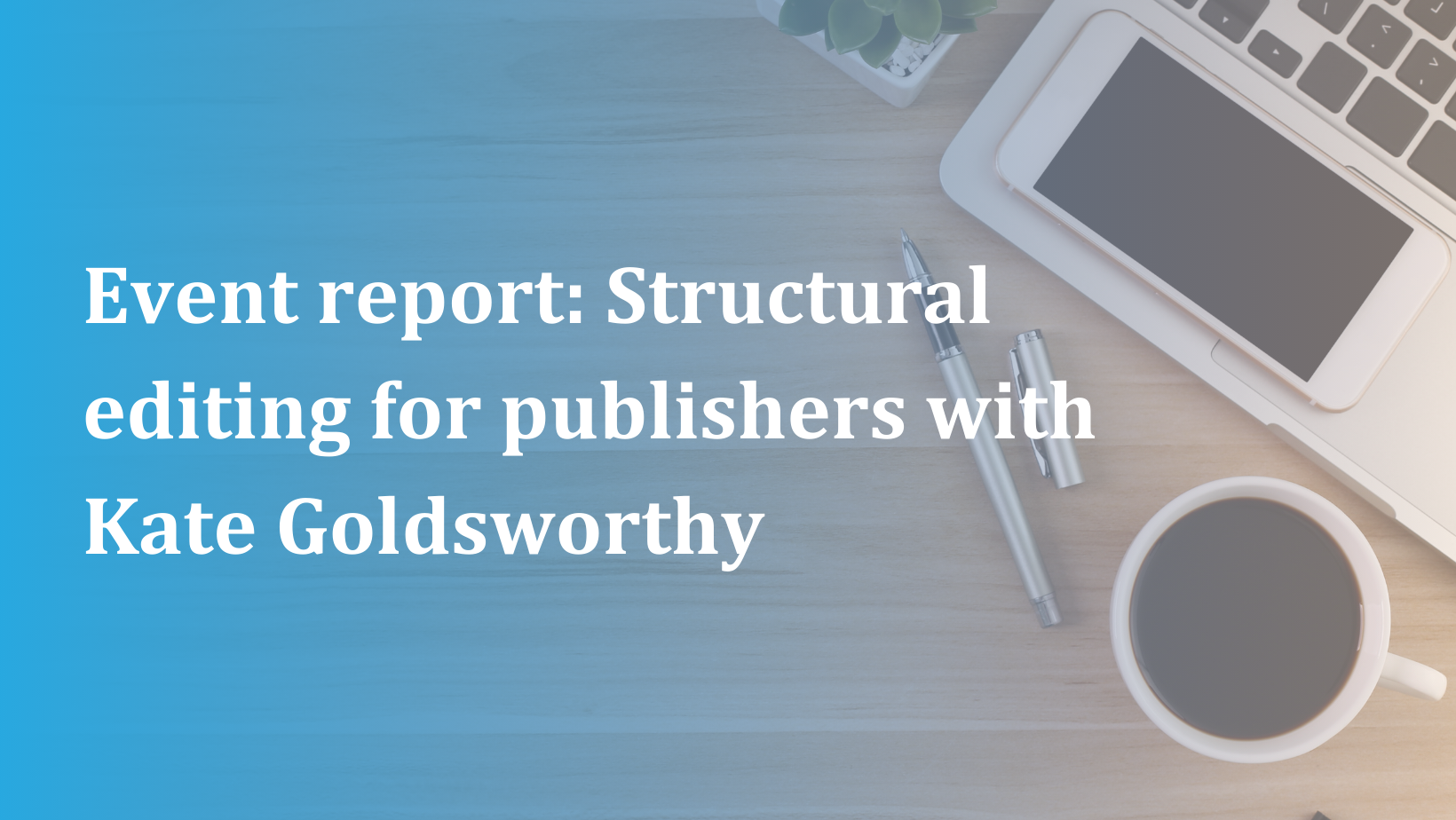
In June and July 2024, Kate Goldsworthy delivered two workshops on structural editing for fiction and nonfiction.
Editors Western Australia reports on the workshops and the key takeaways.

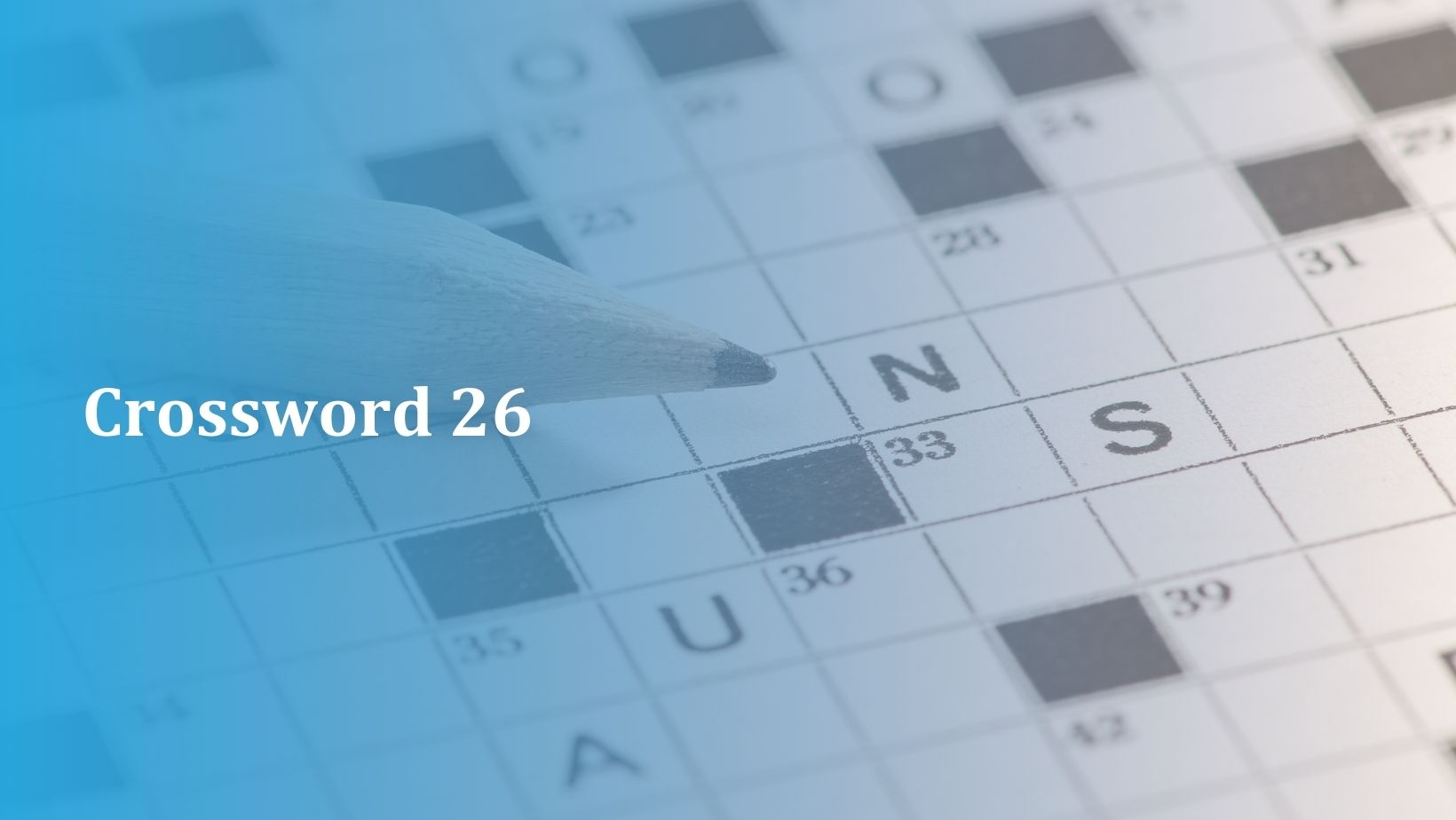

Congratulations to IPEd members Renée Otmar DE, Rose Michael, Sharon Mullins and Katherine Day whose open access article “Ethics and the use of generative AI in professional editing” was recently published in AI and Ethics.
This paper engages with the ethical and industrial implications of using GnAI in a creative context, namely literary publishing. It raises crucial questions about intellectual property, trust, the author–editor relationship and publishing professionals’ evolving roles in shaping quality literature.
And additional congratulations to Renée Otmar DE, who recently published the open access article “Trauma in Publishing” in Publishing Research Quarterly.
In the publishing industry, scant attention is given to the occupational risks faced by the workforce charged with disseminating these trauma stories: the editors, literary agents, proofreaders, publicists and other publishing personnel who are repeatedly exposed to trauma narratives. Even as publishing facilitates healing through story, it is also perpetuating—or at the very least enabling—the transmission of trauma: from author to publishing personnel, and quite possibly also from industry to reader.

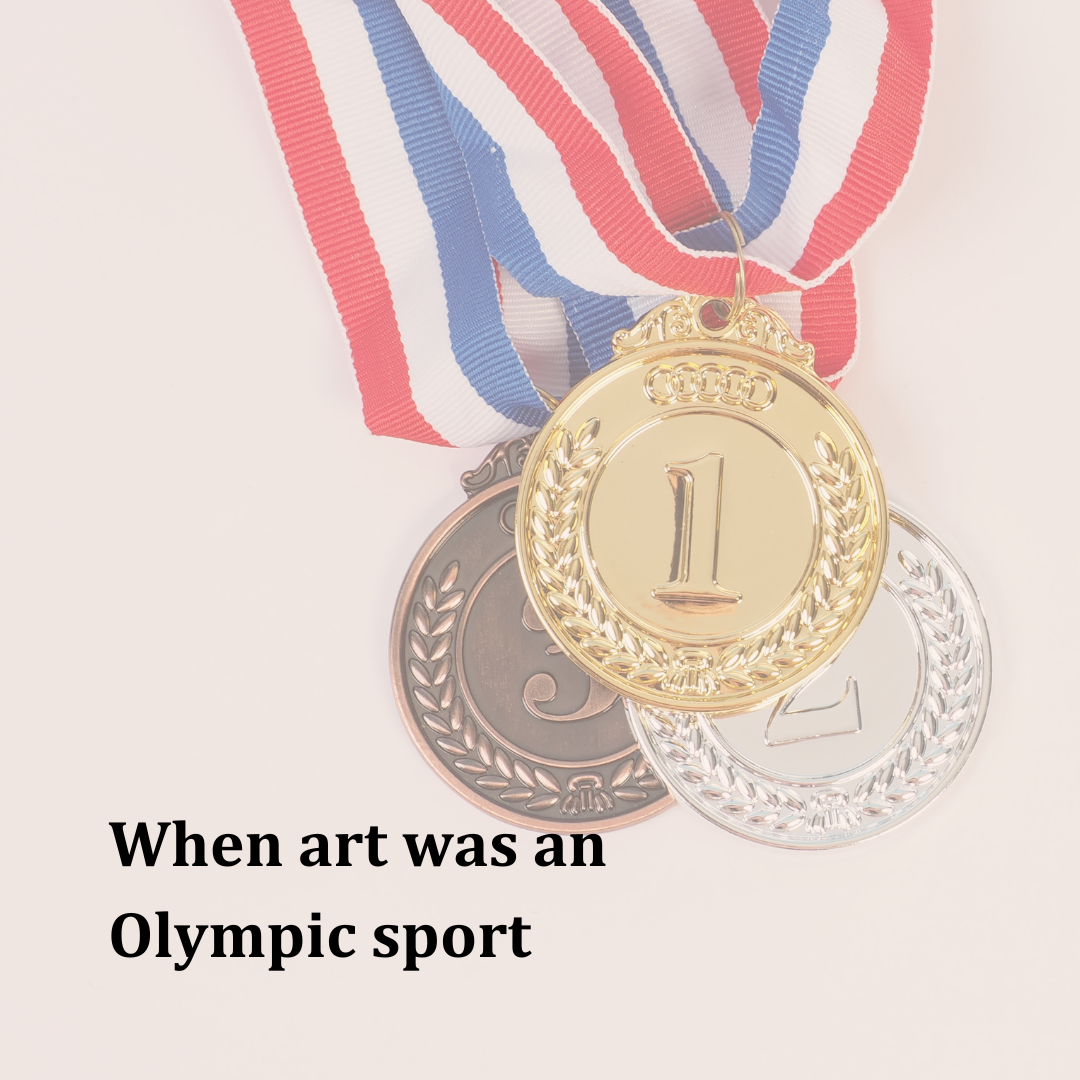
When art was an Olympic sport
If you’ve been glued to Olympics coverage, finessing hitherto unknown skills in fencing, artistic gymnastics and judo, you might be interested to learn that at the 1912 Olympics, artists, sculptors, musicians, writers and architects competed for medals. And did you know about the Poetry Olympics, which existed 200 years before the advent of the modern Olympics?
And if your Olympics watching has introduced you to a new vernacular, why not suggest a word for the Australian National Dictionary? The Australian National Dictionary Centre is looking for contributions, with a focus on sport-related words and phrases.
“Getting your first clients” – a CIEP fact sheet
This fact sheet from our friends at the Chartered Institute of Editing and Proofreading (CIEP) gives some useful tips for getting those all-important first clients when you are starting an editorial business.
https://www.ciep.uk/product/getting-your-first-clients.html
Note this is not a free resource.

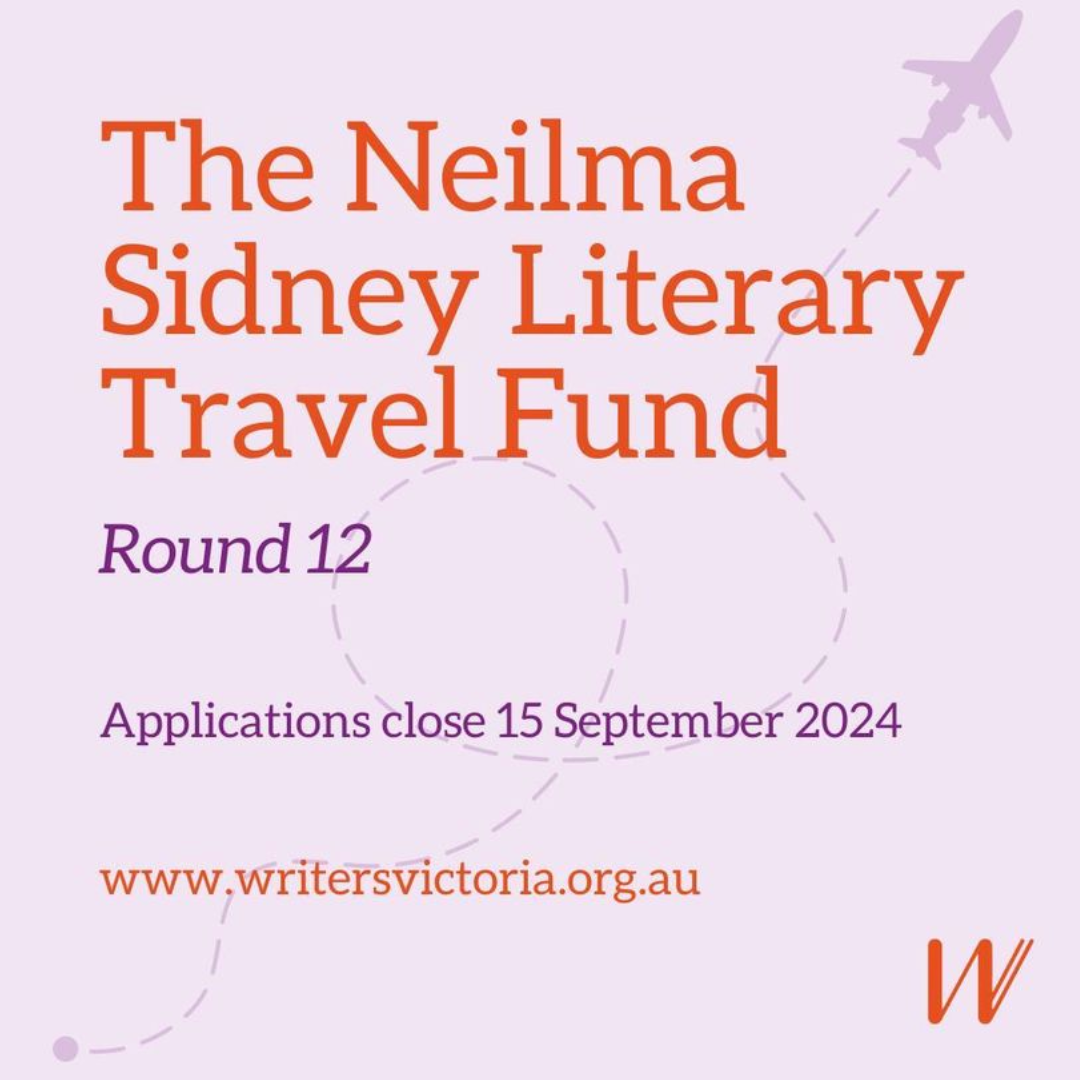
Neilma Sidney Literary Travel Fund
Applications for the Neilma Sidney Literary Travel Fund are now open! The fund supports emerging, mid-career and established Australian writers and literary sector workers in pursuing professional development opportunities. This includes editors. Applicants can apply for grants between A$2,000 and A$10,000. These grants support professional development through travel.
Applications close Sunday 15 September 2024.
Find more information about the Neilma Sidney Literary Travel Fund via the Writers Victoria website.

